#la grande armée
Text
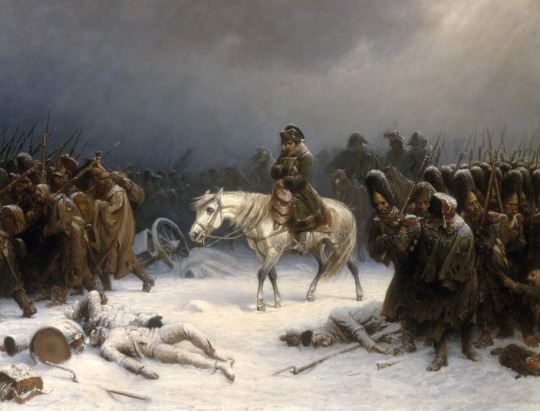
Napoleon's retreat from Moscow by Adolph Northen
#napoléon bonaparte#napoleon#bonaparte#art#adolph northen#retreat#moscow#russia#russian campaign#napoleonic#france#first french empire#french#napoleonic wars#europe#european#history#winter#snow#la grande armée
271 notes
·
View notes
Text



Si bien Julian Barnes es el escritor británico más francófilo, vale la pena recordar a otro autor, el escocés Arthur Conan Doyle, quien tuvo una genuina pasión por la cultura francesa y por su idioma, que hablaba con fluidez. Conan Doyle (1859-1930) fue un estudioso de la historia de Francia y allí ambientó algunas de sus novelas históricas, como La compañía blanca (1891). Ahora que se estrena la película Napoleón en cines, vale la pena leer La gran sombra (1892), en la que, aunque se sitúa en West Inch, la figura de Bonaparte planea sobre toda la historia (y añade una memorable escena en Waterloo). Pero la pasión de Conan Doyle por Napoleón y la "aventura imperial francesa" alcanza su cumbre en los 17 relatos del húsar Etienne Gerard, publicados en The Strand entre 1894 y 1910, y que Valdemar reunió en la edición Hazañas y aventuras del brigadier Gerard. De estos relatos, llenos de humor y de un gran conocimiento de las campañas de la Grande Armée, destaco dos, por su intensidad y suspenso: "Cómo el brigadier mató a los hermanos de Ajaccio" y "Cómo el brigadier salvó al Ejército" (ésta última ambientada en España).
#Arthur Conan Doyle#Napoleon Bonaparte#La Grande Armée#The Long Shadow#Hazañas y aventuras del brigadier Gerard#Brigadier Gerard#Book covers#La compañía blanca#La gran sombra#Napoleon
4 notes
·
View notes
Text


Avenue de la Grande-Armée à la Porte Maillot, pendant la commune de Paris (1871), et aujourd'hui. - source Dominique Messager via Hier et Aujourd'hui.
24 notes
·
View notes
Text
Napoleonic era fiction
Having shared with you the history books about the Napoleonic era I've read recently, let me talk a little bit on the topic of historical fiction. (Not that I read this kind of book much, but there are some I'd like to express my opinion of.)
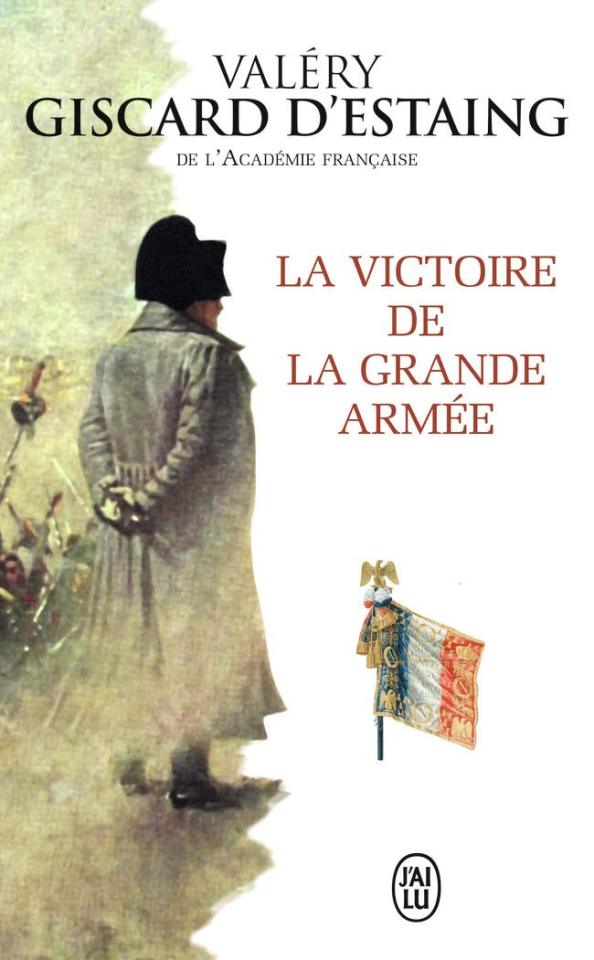
The first one in my list will be La Victoire de la Grande Armée, by the former French President Valéry Giscard d'Estaing. It's an alternative history book, where it is imagined what might have happened if in 1812 the Grand Armée had left Russia just after the battle of Moscow. (A spoiler - as one can guess from the title, everything should have went well for the Napoleonic France).
Alas, there are a lot of discrepancies in the book (like, for example, Poniatowski and Grouchy are marshals already in 1812); in additional, the protagonist (a general named François Beille) seems to be a kind of Marty Stu. Nevertheless, I liked this book, because... in that reality prince Józef didn't die in the battle of Leipzig (because the battle just didn't take place)! On the contrary, he's being made the king of the the restore Poland (though, I must admit, Poniatowski in fact didn't long for a crown - more on the topic here).
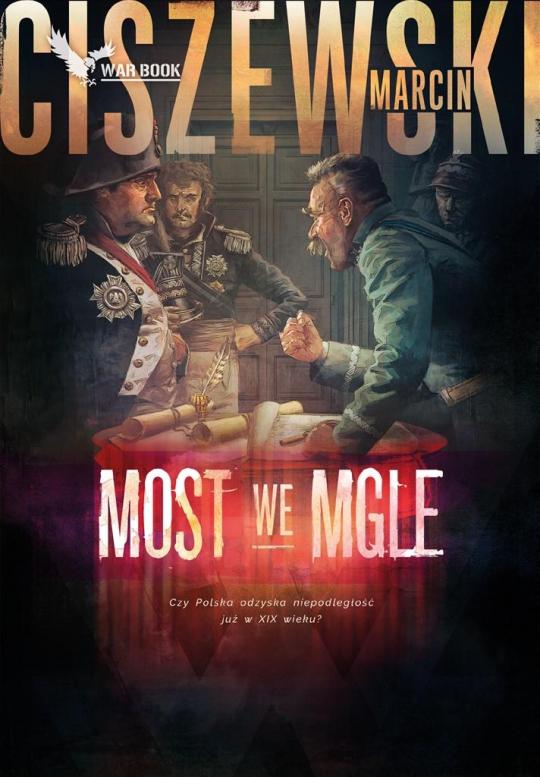
2. Having touched the topic of alternative history I can't help omitting another book (which, unfortunately, hasn't AFAIK been translated to any foreign language that's why I can now recommend it to my Polish speaking friends only). The book's title is Most we mgle (A Bridge In A Fog) and it is written by Marcin Ciszewski.
The plot is that in 1930ies Poland there appeared a time hole leading to 1813, using which a squad of the Polish soldiers was able to go back in time and change the result of the battle of Leipzig. So, in that universe prince Józef didn't die either )) (Though even there he had to become a king ;))
3. From alternative history of Poland let's switch to the real one, and here I have to digress a little to introduce you the next set of book. A friend of mine had once recommended me The Polish trilogy, a series of book by an American writer James Conroyd Martin, mentioning that in one of the books prince Józef's death in the battle of Leipzig is described. (A spoiler - there was such a scene in the second book, but it was not the most detailed description of the event I've stumbled upon, given all the books on the topic I've read, though it may be the only of those written in English.)
Having started to read the first book, I soon discovered that it wasn't an entire fiction, but was based on a real diary of a woman, Anna Maria Berezowska-Stelnicka, who lived in Poland in the end of the XVIIIth century. The diary was inherited by her descendants who live now in the US, and it was also translated to English and published and this is a book I do recommend to read:
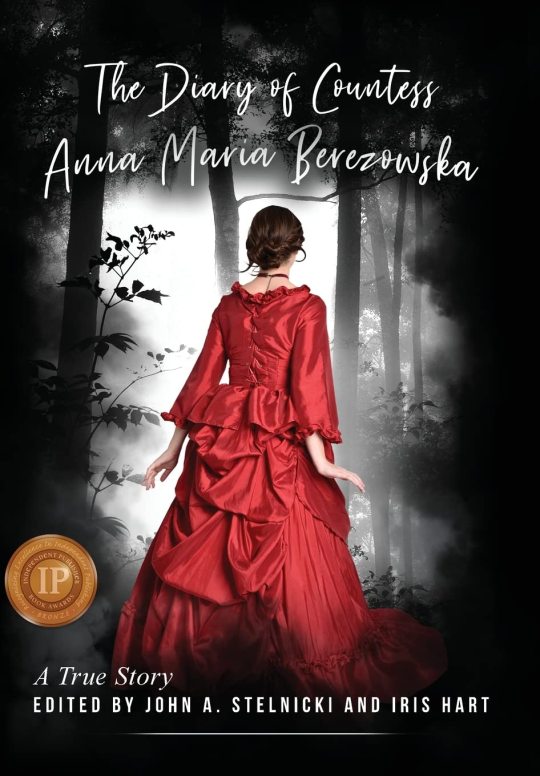
4. And what about the book series? Alas, here I can't be so enthusiastic.
First, it contained a lot of typos (in Polish names etc.; it might have been fixed in the Polish edition, but I was able to find the English one so I read it) and even some historical (for instance, women working as civil-cervants' secretaries of Russian administration in Warsaw in 1830-ies) and geographical discrepancies (for example, according to the author to the East of Warsaw there are stepps which go all the way to Moscow).
In addition, I didn't like how Martin adjusted the real characters from the diary on which he based the first book of his. Also, it surprised me that John Stelnicki, Anna's descendant who is the current owner of her diary, chose a male writer to process the diary into a fiction story (in my opinion, in the book there were scenes where the female protagonist would act illogical and unfeminine and those were the scenes not present in the original diary).
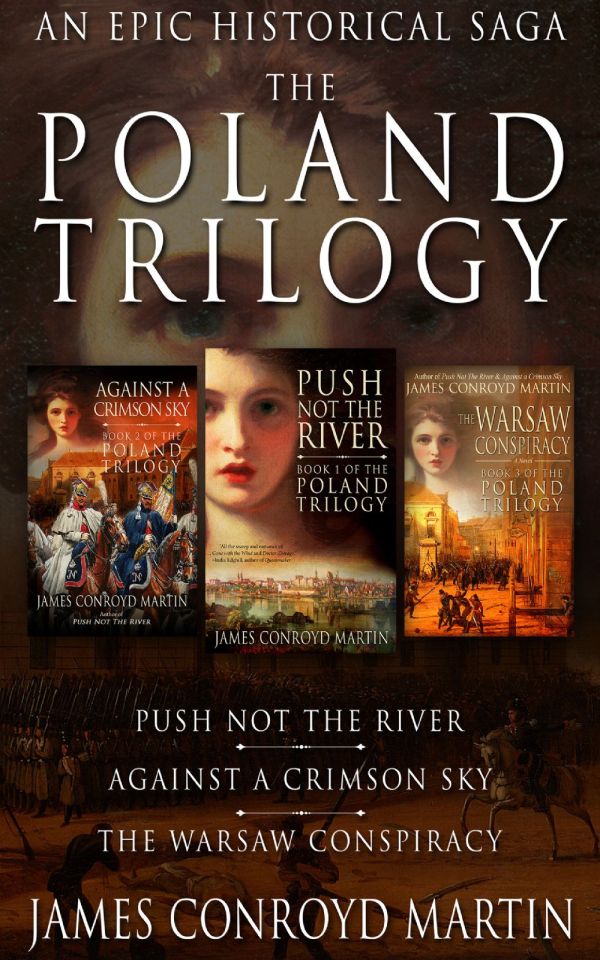
And the second and the third books aren't at all based on the diary events - the action of both diary and the first book, Push not the River, ends in 1794. The second one, Against a Crimson Sky, is set in the span from 1794 to 1814, the last one, The Warsaw Conspiracy, is dedicated the Polish November Uprising which started in 1830 and lasted till October of the next year.
The second book I liked more (and it was there where prince Józef's death was described), but unfortunately, the discrepancies between the characters behavior and how real people of that time did think and act (if to compare with the real diaries and memoires of other real people) only enhanced. (Though it was kind of fun to recognize whose memoires the author was using to describe this or those event).
The last book... well, the November Uprising isn't really my cup of tea, so there were less things there that did catch my eye (but nevertheless, as I've mentioned above, they were). And I was really disappointed that in the epilogue of the book there was nothing about how Anna's family got to America. For because of the Uprising they had to leave Poland everything pointed out that they or there descendants wouldn't have return to the motherland until Poland gained independence in 1918... That's why, taking into account that Anna's descendant who is the owner of her diary does live in the US, it seemed to me it was worth to mention that the family moved to the New World (even if the real chain of events due to which the diary ended in the US couldn't be restored).
5. And the last image is to illustrate more of a question than a recommendation. For the sake of inspiration I decided to look for historical romances where the story is set in Napoleonic France. But, to my great disappointment, it turned out that there are not very much of them. The French Wikipedia in fact mentioned the only one series of books - Juliette Benzoni's Marianne, the set which I read, and even more than once. But those books, in my opinion, though may arouse interest in a person of fourteen, but can't IMHO inspire people in their forties (at least due to the fact that the main love interest of the heroine is a cynical abuser).
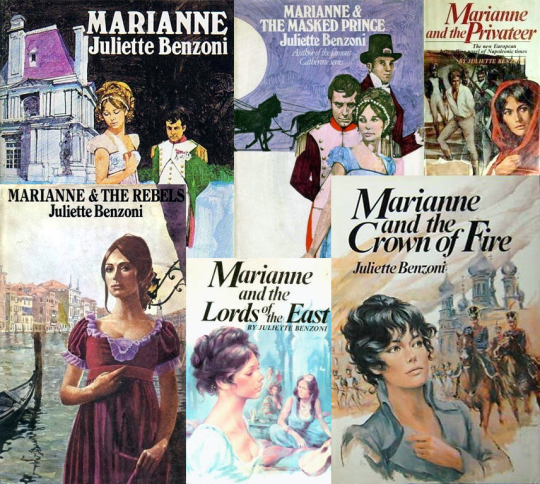
That's why I would like to ask you, my friends, for a recommendation of historical romance with the action set in Napoleonic France or its satellites (and where the protagonists are, of course, on the French side ;))
#Valéry Giscard d'Estaing#1812#napoleon#La Victoire de la Grande Armée#Józef Poniatowski#napoleonic era#napoleonic era fiction#Most we mgle#Marcin Ciszewski#alternative history#Anna Maria Berezowska-Stelnicka#James Conroyd Martin#The Polish trilogy#historical romance
10 notes
·
View notes
Video
Avenue de la Grande Armée - Paris by John Wolfe
Via Flickr:
Avenue Foch and Avenue Carnot flanking left and right.
#Paris#France#La defense#panorama#Arc De Triomphe#Avenue de la Grande Armée#Avenue Foch#Avenue Carnot#Avenue Victor Hugo#Avenue Mac-Mahon#Avenue#boulevard#street#outdoors#wide#wideangle#nikon#d850#tourism#tourisme#panoramique#hi sophie#Parisienne#Parisian#love#day#clouds#streets#cars#cityscape
2 notes
·
View notes
Photo
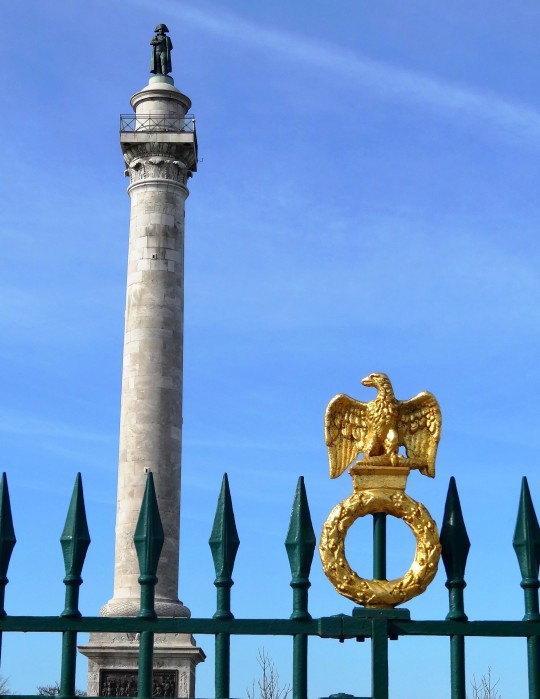
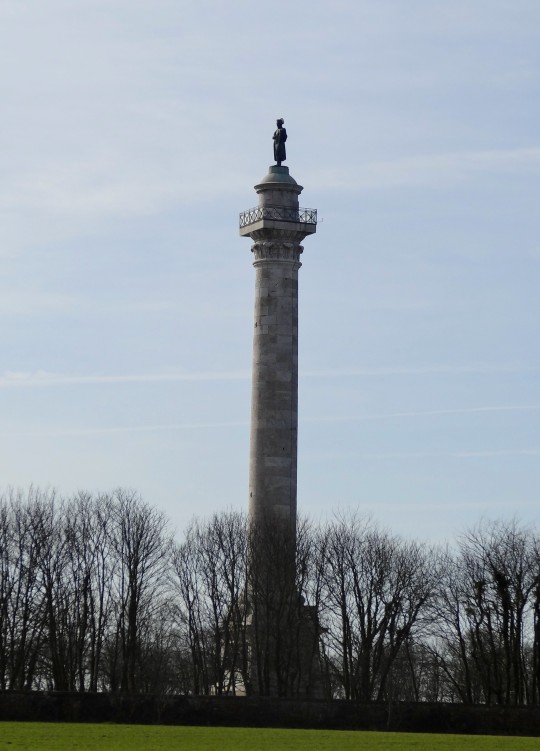
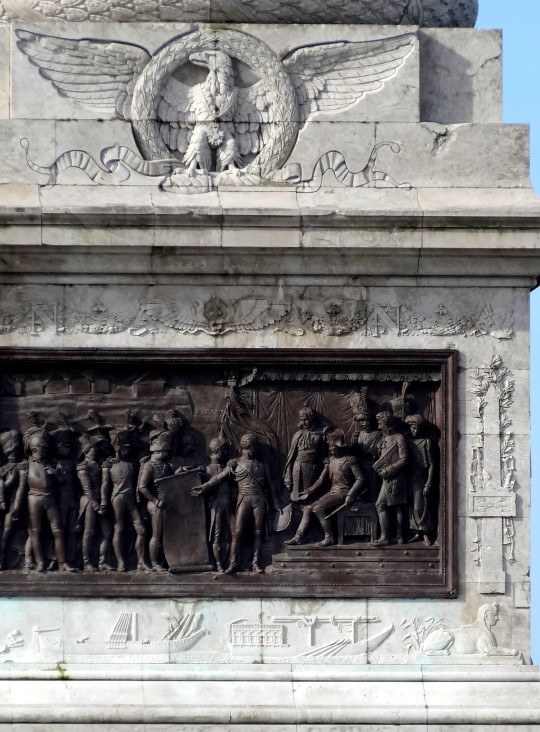
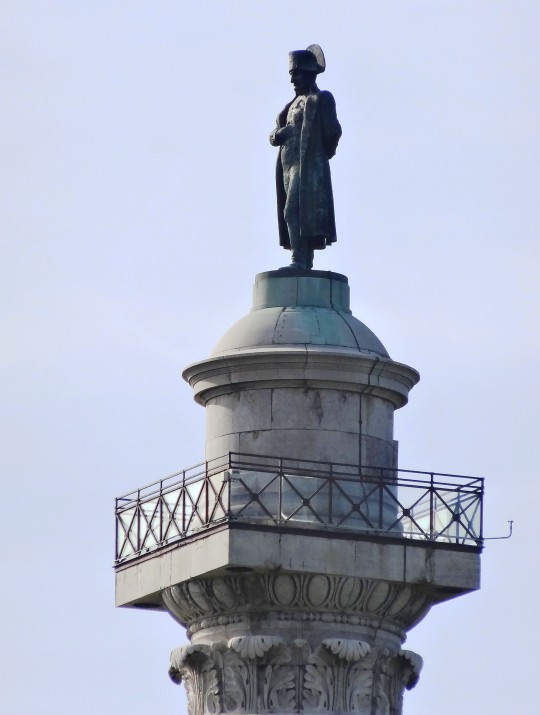
Retour à mon projet de présenter la plupart de mes 53880 photos (nouveau compte approximatif !)
2014. Retour dans le Nord (plus précisément ici, dans le Pas-de-Calais). Vers Boulogne-sur-Mer, la Colonne de la Grande Armée à Wimille, sur laquelle est juché Napoléon.
#souvenirs#pas-de-calais#wimille#boulogne#boulonnais#boulogne-sur-mer#colonne#colonne de la grande armée#napoléon#napoléon 1er#bonaparte#aigle
9 notes
·
View notes
Text
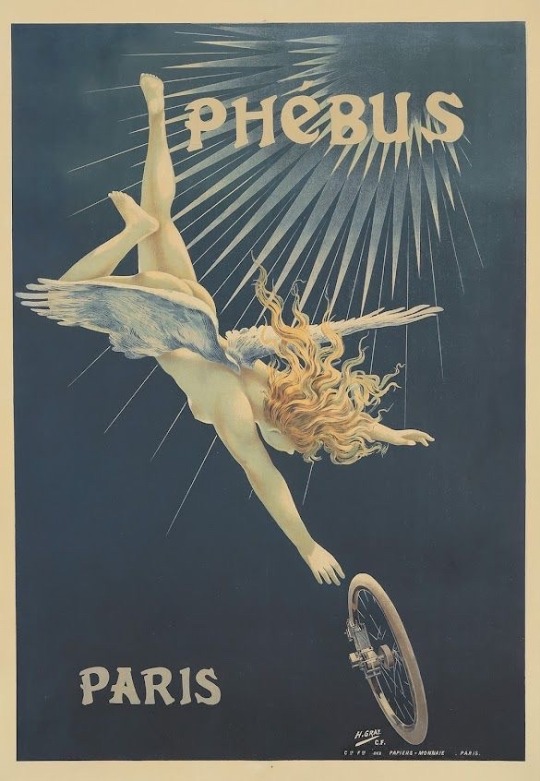
Phébus
30, Avenue de la Grande Armée, Paris
~ Henri Gray (Henri Boulanger 1858-1924), circa 1898
10 notes
·
View notes
Photo
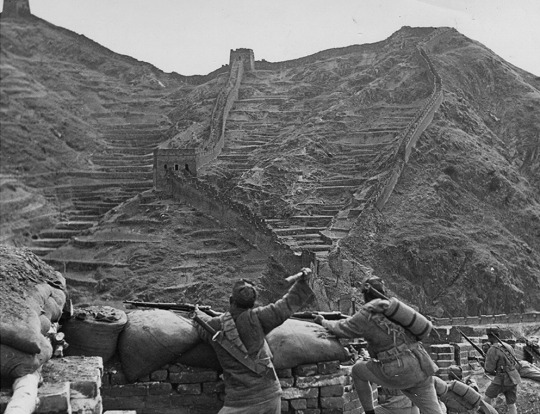
Troupes chinoises défendant la Grande Muraille de Chine face aux japonais près de la passe de Luowenyu pendant la première bataille de Hopei – Province de Hopei – Chine – 1933
©Republic of China Ministry of the National Defense
#Avant-guerre#Pre-war#Guerre Sino-japonaise#Sino-japanese War#Campagnes de Mongolie-Intérieure#Inner Mongolian campaign#Première bataille de Hopei#Défense de la Grande Muraille#Defense of the Great Wall#Armée chinoise#Armée Nationale Révolutionnaire#National Revolutionary Army#ANR#NRA#Grande Muraille de Chine#Great Wall of China#Hopei#Chine#China#1933
2 notes
·
View notes
Text
Situation à l'est de la RDC : les chefs d’état-major des armées de la quadripartite CEEAC-EAC-CIRGL-SADC en réunion sur le renforcement de la coordination des forces déployées dans l’Est de la RDC.
Les chefs d’état-major des armées de la quadripartite sur le cadre conjoint de coordination et d’harmonisation des initiatives régionales de paix dans l’Est de la République démocratique du Congo, en collaboration avec le gouvernement congolais, se réuniront au siège de la Commission de l’Union africaine, vendredi 6 octobre 2023, à Addis-Abeba en Ethiopie.
Cette réunion extraordinaire réunira des…

View On WordPress
#chefs d’état-major des armées de la quadripartite CEEAC-EAC-CIRGL-SADC#Communauté économique des États de l’Afrique centrale (CEEAC)#de la Communauté de l’Afrique de l’Est (EAC)#de la Conférence internationale sur la région des Grands Lacs (CIRGL) et la Communauté de développement de l’Afrique australe (SADC)#réunion sur le renforcement de la coordination des forces déployées dans l’Est de la RDC
0 notes
Text
Mode d emploi projecteur diapositives prestinox
#http://vk.cc/c7jKeU#<p> </p><p> </p><center>MODE D EMPLOI PROJECTEUR DIAPOSITIVES PRESTINOX >> <strong><u><a href= rel="nofollow#<br> prestinox autofocus 720prestinox 724 aft#<br> ampoule pour projecteur diapositives rollei#<br> prestinox 130#<br>#<br> </p><p> </p><p> </p><p>Gratuit : télécharger le mode d'emploi PRESTINOX ou la notice PRESTINOX de votre#guide d'instructions.#sécurité soit armé (voir mode d'emploi) sommaire mise en service chargement changement de la lampe projecteurs Prestinox 624 AF et AFT acce#MODE D'EMPLOI DES PHOTOPROJECTEURS prestinox 412A 424A 4125 424 AF Ils peuvent#les diapositives 24 x 36 en carton#en plastique ou montées sous verre.#C'est également un projecteur classique#qui vous fera mieux apprécier vos diapositives#sur projection grand (Voir mode d'emploi de celui-ci).Ce projecteur fait bien son boulot#facile mais pas fiable es ampoule a changer regulieremet#je ne le possède pas et voudrai l'acquérir#projecteur diapo#Manuel#et notice d'utilisation PRESTINOX 724 AFT - PRESTINOX. Votre guide et mode d'emploi pour vous servir de votre appareil.#Notice d'utilisation#manuel utilisateur#mode d'emploi#manuel d'installation#manuel de service#manuel d'atelier#manuel de réparation#schémas#codes d'#</p><br>
0 notes
Photo

Napoleon's German campaign, 1813.
« Atlas historique de la France », Les Arènes, 2020
by cartesdhistoire
In 1806, Napoleon created the Confederation of the Rhine around Bavaria, Württemberg, Saxony and Baden. It provided support for Napoleonic projects and thus provided tens of thousands of men to the Grande Armée.
68 notes
·
View notes
Text

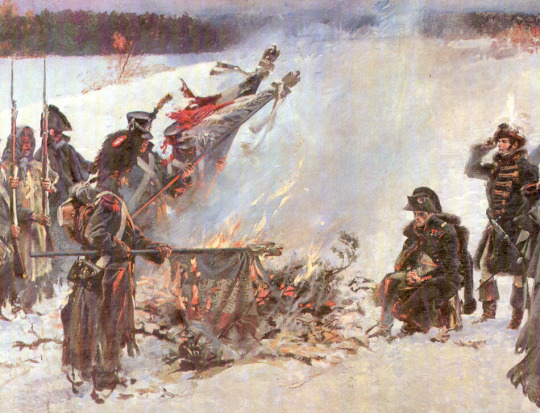
Burning of Regimental Flags before Napoleon by Wojciech Kossak
Burning of Standards in 1812, fragment of 'The Berezina Panorama'
#napoleon#bonaparte#napoléon bonaparte#russian campaign#russia#france#french#la grande armée#art#wojciech kossak#history#napoleonic wars#napoleonic#retreat#europe#european#snow#winter#flags#napoleon bonaparte#napoléon#emperor#empire
184 notes
·
View notes
Note
Is it true that Napoleon Bonaparte used to know and associate with the Robespierre brothers? Like from what I've heard, he was pretty serious about it, to the point that it hampered his career post-thermidor. (It would make the stereotypical depictions of the Terror in Napoleon 2023 pretty hillarious, honestly.)
Yeah, it’s true. According to Saliceti (a Montagnard politician from Corsica), Napoleon was “their man” (1).
The first known mention of Robespierre by Napoleon was on 23 January 1791. He wrote a piece called Lettre à Buttafuoco. Matteo Buttafuoco was a Corsican politician. In it, he writes: “O Lameth! Oh Robespierre! O Pétion! O Volney! O Mirabeau! O Barnave! O Bailly! O La Fayette! This is the man who dares to sit next to you!” (2)
Napoleon was a political ally of the Robespierre brothers. As far as I know, he never met the older Robespierre brother in person, but he did meet and know the younger brother. They were associates and even became friends. Augustin Robespierre wrote to his older brother “the citizen Bonaparte commanding the artillery is of transcendent merit.” (2)
In 1794, Napoleon accepted an “unofficial” position in the Committee of Public Safety’s war office, specifically at the historical and topographical office. While he worked there, he wrote to his brother “I am swamped with work at the Committee.” (3)
This is how Pontécoulant, who oversaw him at the topographical bureau, described Napoleon at this job:
“It was not a mere sinecure that he had accepted, he sometimes worked fifteen hours a day, . . . and the considerable number of memoranda, reports, letters, and documents of all kinds that he wrote . . . would fill several volumes. Never, even during the campaign of 1794, had the topographical office of the Committee of Public Safety . . . deployed such activity; he maintained continuous communications with the leaders of the different armies, and their staffs, astonished, learned from then on to know this nervous style, full of precision, movement and masculine energy.” (4)
It was during this time that he was asked to write a general memorandum on grand strategy. It was titled Sur la position politique et militaire de nos armées de Piémont et d'Espagne (On the political and military position of our armies of Piedmont and Spain). The person he submitted it to was Augustin Robespierre in June 1794.
Frank McLynn’s description of the memoranda:
“Basing his strategy on the writings of Guibert de Bourcet, Napoleon devised a plan that enabled the Army of Italy to advance to the watershed of the Maritime Alps, having secured control of the passes of Col d'Argentière, Tende and St-Bernard. With the enthusiastic support of Augustin Robespierre, who took Bonaparte's memorandum to Paris with him, Napoleon argued that if the French attacked in Piedmont, Austria would be forced to come to the aid of her Austrian possessions and thus weaken her position on the Rhine, allowing the French to strike a knockout blow there. Napoleon's chances of getting the plan accepted looked good, for his new commander-in-chief, General Dumerbion, deferred in all things to the political commissars; Saliceti and Augustin Robespierre, in turn, nodded through anything military that came from the pen of Napoleon.” (5)
Augustin sent Napoleon to Genoa for a diplomatic mission on 11 July 1794. So, the Robespierres were behind the beginning of Napoleon’s long diplomatic career. In fact, Napoleon was still on this mission when he learned about the death of the Robespierre brothers (28 July 1794).
Earlier that year, the younger Robespierre brother had actually proposed that Napoleon take command as head of the Paris National Guard and replace François Hanriot in Paris. Napoleon considered it, but decided to keep his post instead.
Hanriot was executed the same day as the Robespierre brothers. Who knows, perhaps the same fate would have happened to Napoleon had he accepted the offer.
Nevertheless, according to Jean Tulard “the 9th of Thermidor opens a difficult period for him”. (2) He was arrested in the south of France for his association with the Robespierre brothers. The order was signed on August 6th, and he was imprisoned for over a week (August 9th-20th).
The fact that Napoleon had been in a foreign country (Genoa) on a mission for the Robespierre brothers at the time of 9 Thermidor was used against him.
According to Patrice Gueniffey, “Napoleon spent his spare time reading the history of Marshal Maillebois’s campaigns in Italy and writing a long, self-justifying memorandum addressed to the representatives […] without saying anything against Robespierre”. (3)
The appeal which released him specified his military acumen. He was considered too crucially important to the war effort to kill or keep imprisoned.
“We are convinced of the possible utility to us of this soldier's talents, which, we cannot deny it, are becoming very necessary in an army that he knows better than anyone, and in which men of this kind are extremely difficult to find.” (3)
So he was released, with his head still attached to his body. But, the situation had definitely changed for him. The representatives were cautious about him and refused to reemploy Napoleon as commander of the artillery. Nevertheless, he continued to work on the campaigns as part of the staff of General Dumerbion, and working his way up from there.
In 1797, Napoleon evoked Robespierre in a speech in Ancona to a surprised dinner party. He defended Robespierre for his “alleged crimes” and said of him:
“Since its origin,” he tells us, “France has had only one strong government: that of Robespierre.”
The impression of horror that the memory of this man had left on everyone’s minds was so recent, so profound, that it is difficult to imagine the painful surprise this opinion excited, and with what ardor it was opposed. Far from abandoning it, General Bonaparte tenaciously supported it:
“What,” he said, “is a strong government? It is one which has a well-determined useful purpose; the firm will to achieve it; the force capable of making will triumph; finally, the intelligence necessary to properly lead this force. Let’s examine if Robespierre combined all these advantages: What was his goal? The triumph of the revolution. He felt that a counter-revolution would be more bloody, would lead to more cruel, more lasting evils than those that our revolution had demanded and would still require. So he wanted to accomplish it at all costs.” (6)
Did this association have an effect on Napoleon’s career? I would say it definitely impacted his reputation and the perception everyone had of him.
To Madame de Staël (and eventually Victor Hugo), Napoleon was “Robespierre on horseback” (2). Mallet du Pan calls Napoleon “a Corsican terrorist” (7). The royalist pamphleteers had titles like “Robespierre and Buonaparte or the two tyrannies” and “The Jacobins and Buonaparte or historical essay on the alliance of the two tyrannies which oppressed the French nation” (2). In them, Napoleon was described as a “worshiper of Marat, accomplice of Robespierre, vile complacent of Barras” (2). To Metternich, “Napoleon seemed to me the incarnation of the Revolution” (8). He tried to warn the other countries in Europe against making peace with France, because, to him, “No peace is possible with a revolutionary system, whether with a Robespierre who declares war on chateaux or a Napoleon who declares war on Powers” (9). William Pitt the Younger spoke of the “jacobinism of Robespierre, of Barrere” and called Napoleon “the child and the champion of all its atrocities and horrors” (10).

This is a royalist caricature of Napoleon created by Pierre-Marie Bassompierre Gaston. The caption says “One is always faithful to one's first love”. (Source)
Here is Napoleon’s stance on Robespierre:
“Robespierre died because he tried to stop the effects of the Revolution, and not as a tyrant. Those who wanted to bring him down were crueler than he was: Billaud-Varenne, Collot d'Herbois, etc. He had against him Danton's party, which was powerful and immense. Probably he could not have acted otherwise. I believe that Robespierre was without ambition. . . . Everything I read in the Moniteur teaches me nothing, but it confirms me in the opinion that I had, and settles me in it even more. To be sure, Robespierre was not an ordinary man. He was very superior to everything around him. His discourse on the Supreme Being proves it. Disgusted by what he was hearing, he felt the necessity of a religious system among people who did not want anything, either religion or morals. Morality had to be raised up again. He had the courage to do it and he did it... That was great politics. No doubt he shed blood; that is the other side of the coin, but he is certainly less guilty than Tallien, who slaughtered Bordeaux, or Fréron whom I saw in Marseille taking poor unfortunates by the collar to have them shot. Those men were real killers. Had he [Robespierre] not succumbed, he would have been the most extraordinary man who appeared.” (3)
Sources:
(1) Adam Zamoyski, Napoleon: A Life
(2) Jean Tulard, De Napoléon et de quelques autres sujets: Robespierre vu par Napoléon
(3) Patrice Gueniffey, Bonaparte: 1769–1802
(4) Le Doulcet de Pontécoulant, Souvenirs historiques et parlementaires
(5) Frank McLynn, Napoleon: A Biography
(6) J. P. Collot, La chute de Napoléon
(7) Albert Sorel, L'Europe et la Révolution française, V. 5
(8) Memoirs of Prince Metternich 1773-1815 Vol. 1
(9) Henry Kissinger, A World Restored: Metternich, Castlereagh and the Problems of Peace 1812–1822
(10) The speeches of the Right Honourable William Pitt, in the House of Commons, V. 3
#Napoleon#napoleon bonaparte#napoleonic era#napoleonic#first french empire#19th century#french empire#france#history#asks#my answers#answers#ask#augustin robespierre#robespierre
79 notes
·
View notes
Text
Amusing (to me) Description of Soult

"A curious type of man, this Soult; a soldier with the temperament of a politician. The son of a notary, he had a very sketchy classical education, but had acquired a taste for pompous proclamations. He had a haughty manner which went with his severe mien - although he did not look people in the face. As with many senior officers raised under the Revolution, money did not displease him. His contemporaries spoke with admiration, or with snigger of envy, of the magnificent balls followed by suppers which he gave in 1800 at the Duke of Aosta's palace at Turin in honour of a singer about whom he was besotted.
Later, his immense fortune, which Napoleon was not alone in regarding with reservations, allowed him to fulfil his obligations opulently. People did not visit him solely to dine or sup, but also to admire - with murmured observations - his superb picture gallery."
Georges Blond. La Grande Armée. 1997.
#I just really enjoy making collages what can I say 😂#Anyway I found this a little amusing to read.#Jean-de-Dieu Soult#Marshal Soult#Napoleon's Marshals#Napoleonic Era#Napoleonic Wars
36 notes
·
View notes
Note
Help! I'm thinking of getting a 19th century man and my heart is hopelessly set on a fancy French breed! However, in researching breeds of French 19th century men, I'm torn if I want a Napoleonic 19th century man or a La Belle Epoque 19th century man. A friend of mine who has an English 19th century man says that the French breeds are much more high maintenance than their English cousins. Do you have any tips or insight into the differences between various English and French breeds of 19th century men?
I'm going to answer this more recent question over some asks that have been awaiting my attention (my apologies); because it's such a perennial enquiry. In brief, there are less differences between 19th century Frenchmen and 19th century Englishmen than you might think. Your Frenchman is probably a huge anglophile, at least when it comes to his clothes, and he's very influenced by English styles. Meanwhile your Englishman is very impressed by anything in French, and he admires a lot of French culture (and French wines), whether or not he wants to admit it.
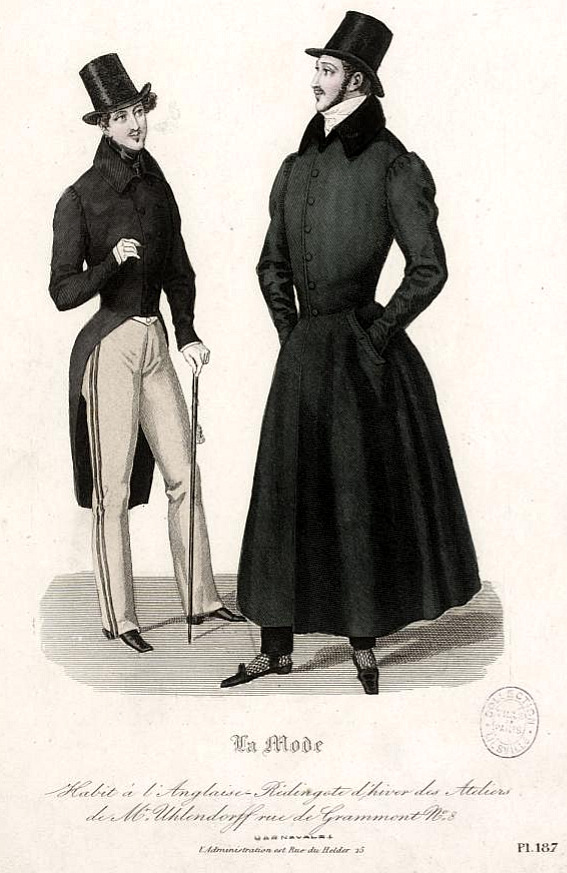
Your typical 1830s Frenchman in his Habit à l'Anglaise.
You will want to research your particular type of 19th century Frenchman (or Englishman), and pay attention to a lot of regional and class variations. Gullible anglophones are super impressed by a 19th century man being French, as if this fact alone makes him like a Romantic Les Misérables protagonist or a slinky Parisian man in his robe de chambre like in a Paul Gavarni drawing.
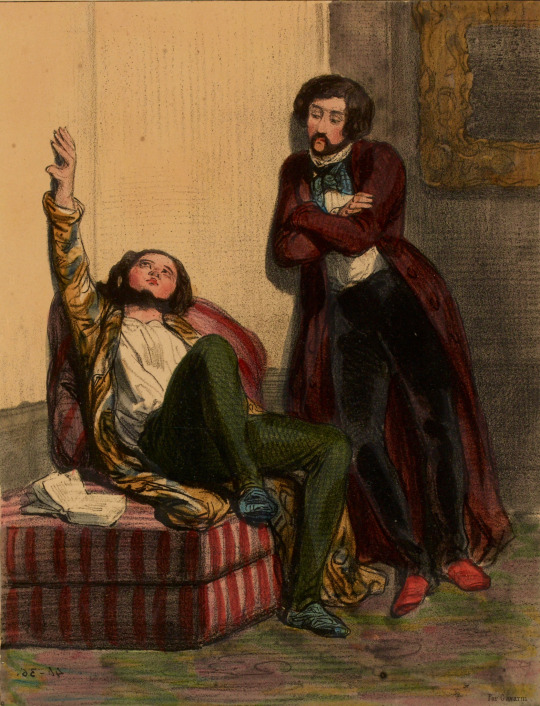
The ideal, not always the reality!
Don't fall head over heels for a French 19th century man with misleading expectations in mind—when he could be from Marseille and want to eat bouillabaisse and play pétanque all day. You will see 19th century Frenchmen claimed to be working in fashion, and it turns out he works at a shirt factory in Argenton-sur-Creuse.
If you are deciding between Napoleonic or La Belle Epoque, I personally recommend Napoleonic if you have lots of energy and you're willing to indulge his urges to roam places at a forced march.

Fun-loving French soldiers at camp in 1809. Let these lads conquer something!
Who doesn't appreciate that sharp uniform that makes you want to show off a man in la Grande Armée? He's not cheap to equip, but it's worth it!
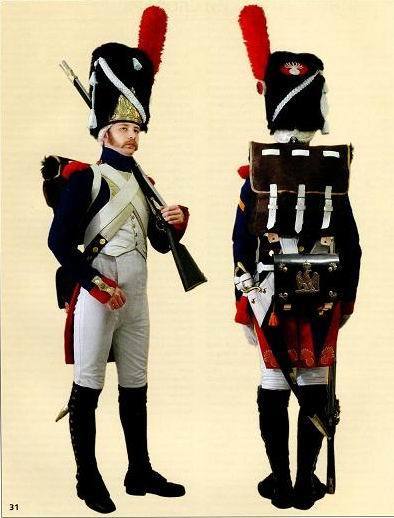
The Belle Époque man may seem less likely to set off on a path of unending war, but he absolutely has his own management issues with a propensity for absinthe, horse racing, and cigars.
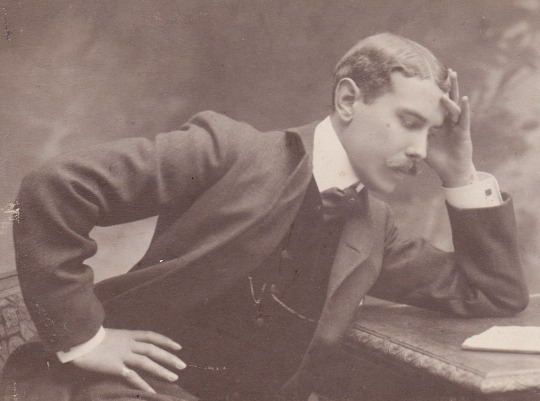
You can't just give him free rein with whatever fin de siècle excessess he wants to pursue, and that pretty face won't last forever when he's a determined roué!
In short, your own lifestyle situation, and the type of 19th century man you're willing to support, will be the deciding factor. Good luck!
101 notes
·
View notes
Text
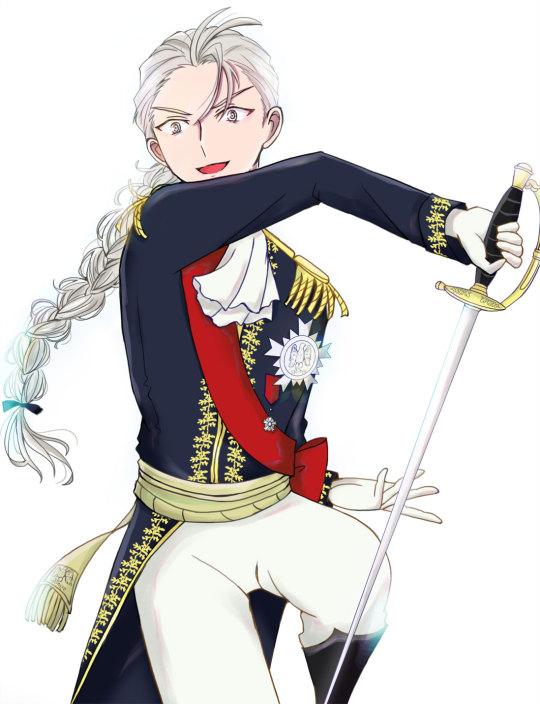

Marshals Lannes,Roland of the Grande Armée(Le Roland de la Grande Armée)
47 notes
·
View notes
